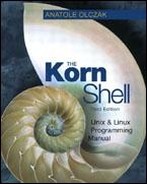Aliases
There are two types of aliases: normal command aliases and tracked aliases. Command aliases are normally used as a short hand for a long or often used command. The shell expands command aliases (i.e., substitutes the alias name for its value) when it reads the first word of a command. An expanded alias is re-processed to check for more aliases. If a command alias ends in a space or tab, the following word is also checked for alias expansion. The alias expansion process stops when a word that is not an alias is found, when a quoted word is found or when an alias word that is currently being expanded is found.
The following command aliases are defined automatically by the shell:
autoload=’typeset -fu’
functions=’typeset -f’
hash=’alias -t’
history=’fc -l’
integer=’typeset -i’
local=’typeset’
login=’exec login’
newgrp=’exec newgrp’
nohup=’nohup ‘
r=’fc -e -’
stop=’kill -STOP’
suspend=’kill -STOP $$’
type=’whence -v’
Tracked aliases allow the shell to remember where it found a particular command. The first time the shell does a path search for a command that is marked as a tracked alias, it saves the full path of the command. The next time the command is executed, the shell checks the saved path to see that it is still valid, and if so, avoids repeating the path search. Tracked aliases can be listed and created using alias -t. Note that changing the PATH parameter clears the saved paths for all tracked aliases. If the trackall option is set (i.e., set -o trackall or set -h), the shell tracks all commands. This option is set automatically for non-interactive shells. For interactive shells, only the following commands are automatically tracked: cat, cc, chmod, cp, date, ed, emacs, grep, ls, mail, make, mv, pr, rm, sed, sh, vi and who.
